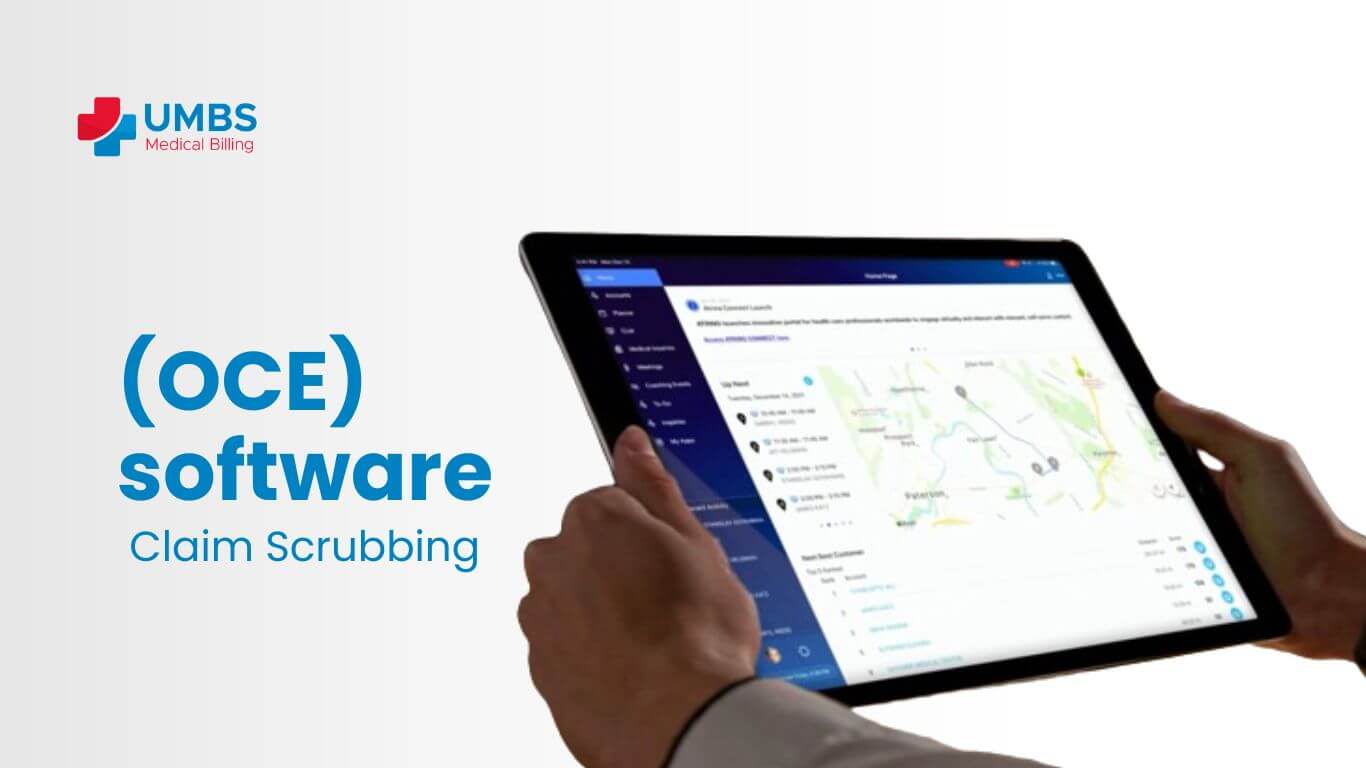The Medicare Outpatient Code Editor (OCE) is a software designed to identify coding errors during the processing of bills submitted by outpatient hospitals. Additionally, it verifies that all outpatient claims submitted to Medicare comply with the pertinent coding guidelines.
‘Integrated’ Outpatient Code Editor (I/OCE)
The Integrated Outpatient Code Editor (I/OCE) program handles claims for all outpatient institutional providers, including hospitals subject to the Outpatient Prospective Payment System (OPPS) and those that are not (Non-OPPS). Each claim is categorized as either ‘OPPS’ or ‘Non-OPPS’ by a flag in the claim record: 1=OPPS, 2=Non-OPPS; any other value defaults to 1.
This version of the I/OCE processes claims with multiple days of service and performs three primary functions:
- Edits the data to identify errors and returns a series of edit flags.
- Assigns unique Ambulatory Payment Classification (APC) numbers to services under OPPS and provides PRICER program input data.
- Assigns a payment group for services at Ambulatory Surgical Centers (ASC) for claims from specific non-OPPS hospitals.
What Benefits Do OCE Edits Provide for Outpatient Providers?
In the world of outpatient billing, think of the Medicare Outpatient Code Editor as your vigilant protector. Its job? To carefully check claims, making sure providers follow coding rules and avoid mistakes. By reviewing code combinations, spotting procedures that can’t happen together, and setting reasonable limits, the OCE helps providers submit accurate claims, prevent rejections, and get paid properly for their important outpatient services.
Now, let’s explore each part of the OCE and how they help with this important task.
Discover how OCE safeguards against overbilling
The role of the Outpatient Coding Editor (OCE) is pivotal in safeguarding providers through meticulous examination of the National Correct Coding Initiative’s (NCCI) Code Pair Edits, assessing both Columns 1 and 2.
This vigilant editor serves to thwart incompatible code amalgamations, distinguishing primary procedures from ancillary ones. By scrutinizing the interplay between these codes, any discrepancies are promptly flagged, proactively averting billing errors.
Consider, for instance, a scenario where a patient undergoes both a diagnostic test (Column 1) and a therapeutic procedure (Column 2) within the same encounter. Here, the OCE would raise an alert for further scrutiny.
This meticulous review process acts as a bulwark against instances of overbilling or duplicate service reporting, thereby fortifying outpatient claims against potential denials or penalties.
Error-Free Outpatient Billing with OCE
The OCE serves as an invaluable tool for healthcare providers, particularly in its meticulous handling of NCCI’s Mutually Exclusive Edits.
These edits target medical services or procedures that are logically incompatible within a single patient appointment. When encountered, they signify different approaches to addressing the same condition. Through sophisticated analysis, the Editor identifies such pairs and prompts providers to select the most fitting code.
Consider, for instance, a scenario where a patient undergoes both open surgery and a minimally invasive scope procedure for the same diagnosis. Here, the Editor plays a vital role in flagging this inconsistency.
The OCE offers dual benefits to physicians: Firstly, it ensures precise billing by preventing claims involving conflicting services. Secondly, it empowers physicians to opt for the most clinically relevant option, thus elevating patient care standards.
Fair Reimbursements: How OCE Supports Providers
The OCE assists healthcare organizations by closely adhering to the NCCI’s guidelines regarding Medically Unlikely Edits (MUEs). These edits set limits on how often certain services can be billed within a specific time frame, based on medical standards and data analysis. For example, billing for a procedure multiple times during one visit when it’s typically done once raises a red flag.
Checking claims for unlikely scenarios helps prevent overcharging for services that aren’t really needed. This coding editor encourages smart use of resources and discourages unnecessary repetition of procedures.
By sticking to Medically Unlikely Edits, providers can maximize reimbursements while ensuring quality care for patients.
Role of OCE in Claim Scrubbing
OCE edits revolutionize outpatient facility claims processing by employing sophisticated data analysis, error identification, and flagging mechanisms for corrective actions. Integrated with specific coding systems and NCCI edits, this approach ensures unparalleled accuracy and consistency in claim scrubbing.
Data Input
The OCE initiative handles claims for a diverse range of outpatient institutional providers, encompassing hospitals under the Outpatient Prospective Payment System (OPPS) and those outside its scope. Each claim is meticulously assembled, incorporating comprehensive demographic details along with all rendered services.
Data Editing
The OCE acts as a behind-the-scenes hero in healthcare billing. This powerful system ensures accurate reimbursements by performing three key tasks:
- Error Detection: The OCE meticulously scans data to identify any inconsistencies or mistakes that could delay or prevent payment.
- Precise Coding: For each covered service, the OCE assigns the correct Ambulatory Payment Classification (APC) number. These codes are crucial for determining the appropriate reimbursement amount.
- Optimized Payments: The OCE assigns the most fitting Ambulatory Surgical Center (ASC) payment group for specific services. This ensures you receive the correct compensation for procedures performed in certain non-OPPS hospitals.
By catching errors, assigning accurate codes, and optimizing payment groups, the OCE helps ensure you receive timely and appropriate reimbursements for your services.
Edit Flags
The OCE operates like a meticulous detective, ensuring your claims are billed accurately. It achieves this by utilizing a unique list-based structure. This structure allows the OCE to seamlessly link three crucial elements:
- The edits needed: The OCE pinpoints any errors or inconsistencies in your claims and generates a list of “edit numbers” indicating the required corrections.
- The rationale behind the edits: For each edit number, the OCE provides clear explanations for why the changes are necessary. This transparency helps ensure you understand the reasoning behind each adjustment.
- The specific details: The OCE connects the edit numbers and their explanations directly to the relevant information on your claim that triggered the need for correction.
This interconnected system allows for a clear understanding of any changes made, ensuring accurate and transparent billing for both you and the payer.
Coding Systems
The OCE manages all responsibilities requiring direct reference to HCPCS codes, HCPCS modifiers, and ICD-9-CM diagnosis codes. Given the complexity and yearly revisions of these coding systems, consolidating their direct references within a single program minimizes effort and mitigates the risk of inconsistent processing.
Diagnosis Codes: The OCE validates the accuracy of diagnosis codes listed on the claim, ensuring they align with the documented medical records and accurately depict the patient’s condition with specificity.
Procedure Codes:
The OCE meticulously assesses the procedure codes provided in the claim to ensure their accuracy and suitability for the services performed. It ensures alignment with both the patient’s diagnosis and the documented medical records.
Modifiers
The OCE verifies modifiers, which offer supplementary details about the services provided, ensuring their accurate usage in adherence to coding guidelines.
Conclusion
The Medicare Outpatient Code Editor (OCE) plays a pivotal role in ensuring accurate and compliant processing of outpatient hospital bills. It meticulously verifies diagnosis and procedure codes, ensuring alignment with documented medical records and coding guidelines. Additionally, the OCE assigns Ambulatory Payment Classification (APC) numbers and Ambulatory Surgical Center (ASC) payment groups, optimizing reimbursement outcomes for providers.






